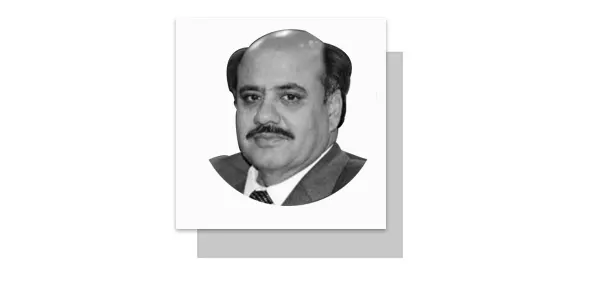THE recent ceasefire between Pakistan and India has averted catastrophe in the region.
Besides, it reconfirmed Islamabad and New Delhi’s dependency on the external powers’ mediatory role in de-escalating the conflict and exposed their limitations in managing and resolving it bilaterally.
Both sides’ dependency on the international community demands its practical role in executing United Nations Security Council Resolutions on Kashmir to prevent the region from a devastating war catastrophe.
Since the Pahalgam attack in Indian Illegally Occupied Jammu and Kashmir (IIOJK) on April 22, 2025, Pakistan has struggled to draw the attention of the international community towards the Modi Government’s false flag tactics to conceal state terrorism, Indian intelligence agencies’ failure and security forces’ incompetency by shifting the blame on Pakistan.
Instead of conducting an investigation and fixing responsibility, the Modi Government alleged Pakistan for perpetrating the attack without evidence.
Pakistan attempted to pacify the situation by offering the Indian ruling elite cooperation in investigating the Pahalgam attack.
However, the Modi government had nefarious ulterior motives, which brought India and Pakistan to the brink of an all-out war.
Fortunately, rationality prevailed and India and Pakistan announced a ceasefire on May 10, 2025.
However, the current ceasefire remains fragile without finding a solution to the Kashmir dispute.
Since the early 1980s, the Bharatiya Janata Party has been using anti-Muslim slogans to garner the support of Hindu voters.
This trend has been alarmingly intensified by Prime Minister Narendra Modi, famously known as the butcher of the Gujarati Muslims.
His militant philosophy against the minorities, especially Muslims in India and aggressive strategy to bleed Pakistan to drive the support of ultranationalist and Hindutva forces in the general and state elections has haunted the strategic stability in South Asia.
Ironically, Prime Minister Modi and his cohorts have downplayed the military capability of Pakistan.
They are under the illusion that Indian armed forces are superior to the Pakistani forces without realizing that Pakistan has battle-hardened armed troops equipped with advanced weaponry, including nuclear weapons.
The disturbing daydream of the Indian ruling elite, strategic pundits and media is that India is militarily stronger than Pakistan.
Therefore, it could escalate or de-escalate the conflict to its advantage.
This superiority complex of the Indians is very alarming for the strategic stability of South Asia.
Islamabad’s responsible and restrained approach towards India has been taken for granted by the Modi government.
It miscalculated Pakistan’s war-fighting potential and adopted coercive political, diplomatic and military measures.
Indian Air Force airstrikes on May 7, 2025 were a gross violation of international norms and law.
India bluntly defied in letter and spirit the United Nations Charter’s Article 2(4) that governs the laws of the use of force by states: “All members shall refrain in their international relations from the threat or use of force against the territorial integrity or political independence of any state, or any other manner inconsistent with the Purposes of the United Nations.”
India’s missile strikes killed innocent civilians and destroyed mosques and civilian residences.
It compelled Pakistani armed forces to take necessary measures for the sovereignty and defense of the country.
The successful military countermeasures and retaliatory missile strikes on the Indian military assets immediately changed the international community’s mood.
The great powers, especially the Trump administration, seemed to align with Modi’s irrational anti-terrorism narrative without realizing that it was not merely for self-defense but domestic political consumption, i.e., to incite nationalist fervor to lock the ‘Hindu’ vote in forthcoming state election-Bihar and Utter Pradesh.
Indeed, this tactic to sustain Modi’s popularity and win the forthcoming state elections would have dangerous repercussions for the entire region.
The international community needs to condemn the irresponsible behavior of Prime Minister Modi and his cohorts and also assist both New Delhi and Islamabad to resume composite dialogue to resolve the chronic disputes, especially executing the United Nations Security Council Resolutions on Kashmir to prevent the region from a devastating war catastrophe.
The encouraging factor is that the Pakistani ruling elite is prepared for a dialogue process to settle the disputes with India.
Still, the sad reality is that the Indian ruling elite is unprepared for settling bilateral disputes peacefully.
Thus, the irrational approach of India towards Pakistan and the apathetic approach of the international community towards Kashmiri’s right to self-determination and the Indian military’s brutality in the Illegally Indian Occupied Jammu and Kashmir could jeopardize the recently announced ceasefire between the nuclear-armed India and Pakistan.
—The writer is Prof at the School of Politics and IR, Quaid-i-Azam University. (jaspal_99@hotmail.com)


















